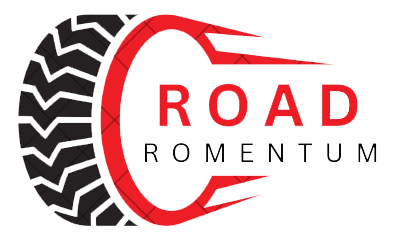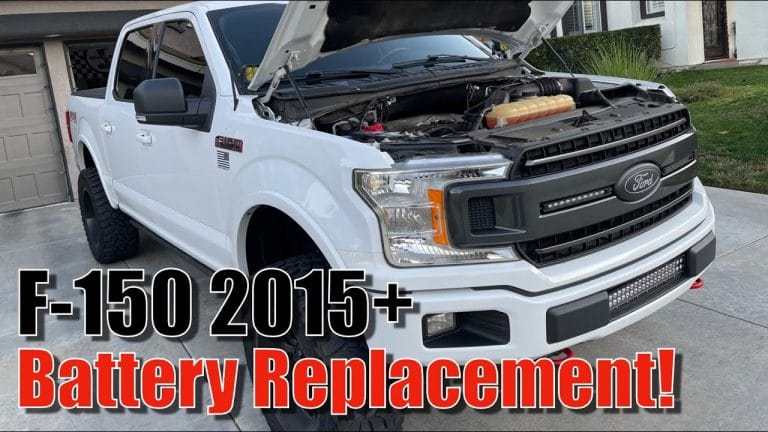Can I Put E85 in My F150 Ecoboost? Find Out Now!
Yes, you can put E85 in your F150 Ecoboost if it is a flex fuel vehicle, which can be determined by the badging on the rear of the truck and mentioned in the owner’s manual. Flex fuel vehicles are designed to run on a blend of gasoline and ethanol, such as E85.
However, if your truck is not labeled as flex fuel or specified as such in the owner’s manual, it is not recommended to use E85 as it may not be compatible with your engine and could cause damage.

Credit: www.morepowertuning.com
What Is E85?
E85 is a type of fuel that contains a blend of 85% ethanol and 15% gasoline. The F150 Ecoboost is not designed to run on E85 and using it may result in lower fuel economy. It’s important to check your owner’s manual or look for the “flex fuel” badge on your truck to determine if it is compatible with E85.
Introduction To E85
E85, also known as flex fuel, is a blend of ethanol and gasoline. This fuel is specifically designed for use in flexible fuel vehicles, which can operate on any combination of gasoline and ethanol. E85 contains 85% ethanol and 15% gasoline, making it an attractive option for drivers looking to reduce their carbon footprint and potentially save on fuel costs.
Composition Of E85
E85, as mentioned earlier, is a blend of 85% ethanol and 15% gasoline. Ethanol, which is primarily derived from corn or sugar crops, is a renewable energy source. When combined with gasoline, it creates a fuel that burns cleaner and produces fewer emissions compared to traditional gasoline.
However, it is important to note that not all vehicles are compatible with E85. Flex fuel vehicles, such as the F150 Ecoboost, are designed to run on E85 or any blend of ethanol and gasoline. These vehicles have the necessary hardware and software to adjust the engine’s performance based on the type of fuel being used.
Benefits Of E85
E85 offers several benefits for vehicle owners, including:
- Reduced environmental impact: When compared to traditional gasoline, E85 reduces greenhouse gas emissions and air pollutants. Ethanol is a renewable fuel source, and its production requires less energy compared to refining gasoline.
- Potential cost savings: In some areas, E85 is cheaper than gasoline. This can lead to cost savings for drivers, especially if their vehicle has good fuel efficiency with E85.
- Increased performance (for compatible vehicles): Flex fuel vehicles like the F150 Ecoboost may experience a slight increase in performance when running on E85. The higher octane rating of ethanol can enhance the engine’s power output.
However, it is important to note that E85 may result in lower fuel efficiency compared to gasoline. This is because ethanol contains less energy per gallon compared to gasoline, necessitating a larger volume of fuel to achieve the same distance.
Before considering using E85 in your F150 Ecoboost, it is essential to check your vehicle’s owner’s manual and consult with a qualified mechanic. They can provide guidance on whether your vehicle is compatible with E85 and any potential modifications needed.
What Is An F150 Ecoboost?
The F150 Ecoboost is a popular engine option for Ford trucks. However, it is important to note that not all F150 Ecoboost engines are designed to run on E85 fuel. It is recommended to check the owner’s manual or look for badging indicating if your particular F150 Ecoboost is flex fuel compatible.
Overview Of F150 Ecoboost
The F150 Ecoboost is a powerful and efficient engine option for Ford’s popular F150 truck. It combines turbocharging and direct fuel injection to provide impressive performance and fuel economy. With its smaller displacement and turbocharging technology, the F150 Ecoboost offers the power of a larger engine while delivering better efficiency. This makes it a great choice for those who want the best of both worlds – power and fuel economy.Features Of F150 Ecoboost
The F150 Ecoboost comes with a range of features that enhance its performance and efficiency. Here are some key features of the F150 Ecoboost engine:- Turbocharging: The F150 Ecoboost is equipped with twin turbochargers, which provide more power and torque compared to a naturally aspirated engine.
- Direct Fuel Injection: This technology allows for more precise and efficient fuel delivery, improving both power and fuel economy.
- High Compression Ratio: The F150 Ecoboost has a high compression ratio, which helps optimize combustion and further enhance performance and efficiency.
- Variable Valve Timing: The engine uses variable valve timing to optimize airflow and improve power delivery at different engine speeds.
- Aluminum Construction: The engine block and cylinder head are made of lightweight aluminum, reducing weight and improving overall efficiency.
- Electronic Engine Control: The F150 Ecoboost utilizes advanced engine control systems to monitor and optimize performance in real-time.
- Integrated Exhaust Manifold: The exhaust manifold is integrated into the cylinder head, reducing turbo lag and improving overall engine response.
Compatibility Of E85 With F150 Ecoboost
The F150 Ecoboost is not compatible with E85 fuel. It is important to check your truck’s owner’s manual or look for the “flex fuel” badging to determine if your vehicle is capable of using E85.
Determining If F150 Ecoboost Runs On Flex Fuel
There are two simple ways to determine if your F150 Ecoboost runs on flex fuel:
- Check for badging: Look for the “flex fuel” badge located on the rear of your truck. This badge indicates that your truck is designed to run on both gasoline and E85.
- Check the owner’s manual: Flip through your truck’s owner’s manual and look for any mention of flex fuel compatibility. If your manual states that your F150 Ecoboost is a flex fuel vehicle, then you can confidently say that it’s compatible with E85.
Difference Between Ecoboost And Flex Fuel
It’s important to understand the difference between EcoBoost and flex fuel:
- EcoBoost: EcoBoost is Ford’s brand of turbocharged, direct-injection gasoline engines. These engines are designed to deliver greater power and fuel efficiency compared to traditional naturally-aspirated engines. They are not specifically optimized to run on E85.
- Flex fuel: Flex fuel, on the other hand, refers to vehicles that are capable of running on a blend of gasoline and ethanol, such as E85. These vehicles have specific modifications to their fuel systems that allow them to handle higher ethanol concentrations.
While F150 Ecoboost engines are not directly tuned for E85, they can still run on E85 without any major issues. However, keep in mind that using E85 can lead to a decrease in fuel efficiency compared to using regular gasoline.
So, can you put E85 in your F150 Ecoboost? Yes, you can. But it’s important to understand the potential impact on your fuel efficiency.
Factors To Consider Before Using E85 In F150 Ecoboost
When it comes to fueling your F150 Ecoboost, there are a few factors to take into consideration before deciding to use E85. While E85, a blend of 85% ethanol and 15% gasoline, offers some benefits, it’s important to weigh these factors to make an informed decision.
Impact On Mpg
One of the most significant factors to consider is the impact on your truck’s MPG (Miles Per Gallon). E85 typically provides fewer miles per gallon compared to gasoline, meaning you’ll need to refuel more frequently. This reduced efficiency can result in increased costs in the long run. However, it’s important to note that the actual impact on MPG can vary depending on driving conditions, engine modifications, and individual truck specifications.
Calculating Total Cost
Calculating the total cost of using E85 is essential to determine whether it is a financially viable option. While E85 is often cheaper per gallon than gasoline, it’s crucial to consider the lower fuel efficiency it offers. To calculate the total cost, you need to factor in the price of E85, the frequency of refueling, and the truck’s MPG. By comparing the total cost of using E85 with gasoline, you can make an informed decision based on your budget and driving habits.
Engine Longevity
Another crucial factor to consider is the impact of E85 on your engine’s longevity. Ethanol has different combustion and lubrication properties compared to gasoline. While modern engines have been designed to handle ethanol blends, extended use of E85 might lead to increased wear and tear on engine components. It’s important to consult your truck’s manufacturer or a trusted mechanic to understand the long-term effects of using E85 on your specific engine.
Ethanol Content And Availability
E85 is a blend of 85% ethanol and 15% gasoline. However, it’s vital to check the ethanol content of the fuel available in your area, as it can vary. Additionally, while E85 is becoming more readily available, it might not be as accessible as regular gasoline. Factors such as location and proximity to E85 stations should be considered before opting for this fuel blend.
Overall, before using E85 in your F150 Ecoboost, it’s crucial to consider the impact on MPG, calculate the total cost, understand its effects on engine longevity, and evaluate the ethanol content and availability in your area. By evaluating these factors, you can make an informed decision about whether E85 is the right choice for your truck.
Effects On Engine Longevity
Using E85 fuel in your F150 Ecoboost can have an impact on engine longevity. It is important to consider factors such as reduced MPG and potential compatibility issues before making the switch.
Impact On Engine Performance
When it comes to putting E85 in your F150 Ecoboost, one of the important considerations is how it will impact your engine’s performance. E85, which is a blend of 85% ethanol and 15% gasoline, has a higher octane rating compared to regular gasoline. This means that it can potentially increase horsepower and torque in your Ecoboost engine. The higher octane rating of E85 allows for more efficient combustion, which can result in improved engine performance. Additionally, E85 has a higher oxygen content, which means that it can burn more completely and produce more power. This can be especially beneficial for those looking to enhance the performance and acceleration of their F150 Ecoboost.However, it’s essential to keep in mind that using E85 may lead to decreased fuel efficiency. E85 contains less energy per gallon compared to gasoline, which can result in lower miles per gallon (MPG) readings. So, while you may experience a boost in power, you might also notice a decrease in fuel economy.Maintenance Considerations
Ensuring that your F150 Ecoboost engine stays in good condition is essential for its long-term longevity. When using E85, there are a few maintenance considerations to keep in mind to avoid any potential issues.Firstly, it’s crucial to check if your F150 Ecoboost is compatible with E85. While some Ecoboost engines can handle E85 without modifications, others may require specific upgrades or tuning to accommodate the higher ethanol content. Consult your truck’s owner’s manual or contact a professional mechanic to ensure that your engine is compatible.Secondly, due to its corrosive nature, ethanol can affect certain fuel system components. It’s advisable to regularly inspect and maintain your fuel system, including the fuel lines, injectors, and fuel pump, to prevent any potential damage caused by E85. Additionally, using fuel system cleaners specifically designed for E85 can help remove any built-up deposits and maintain optimal performance.Finally, since E85 is less readily available compared to regular gasoline, you’ll need to plan your refueling accordingly. Ensure that you have access to E85 stations nearby or have a backup plan in case E85 is not available. It’s also a good idea to monitor your fuel gauge regularly to avoid running low on fuel and potentially damaging your engine.In conclusion, while using E85 in your F150 Ecoboost can have a positive impact on engine performance, it’s important to consider the potential effects on fuel efficiency and maintenance. By being aware of its compatibility with your engine, maintaining your fuel system, and planning your refueling, you can enjoy the benefits of E85 while ensuring the longevity of your F150 Ecoboost engine.
Credit: www.youtube.com

Credit: fuel-it.com
Frequently Asked Questions On Can I Put E85 In My F150 Ecoboost
Can You Run E85 In Ecoboost F150?
Yes, the EcoBoost F150 can run on E85. You can determine if your truck is compatible by checking for badging or consulting the owner’s manual.
How Do I Know If My F150 Can Use E85?
To determine if your F150 can use E85, check for a “flex fuel” badge on the rear of your truck and consult your owner’s manual.
Can Ecoboost Engine Use Flex Fuel?
Yes, the EcoBoost engine can use flex fuel. There is badging on the rear of the truck that says “flex fuel” and the owner’s manual indicates it is a flex fuel vehicle.
What Is The Best Fuel For F150 Ecoboost?
The best fuel for F150 EcoBoost is premium unleaded gasoline.
Conclusion
Based on the information provided, it is clear that putting E85 in an F150 Ecoboost is not recommended. While the engine may technically be able to run on flex fuel, the reduced fuel economy and potential engine damage make it an unwise choice.
It is always best to follow the manufacturer’s guidelines and use the recommended fuel for optimal performance and longevity of your vehicle.

















